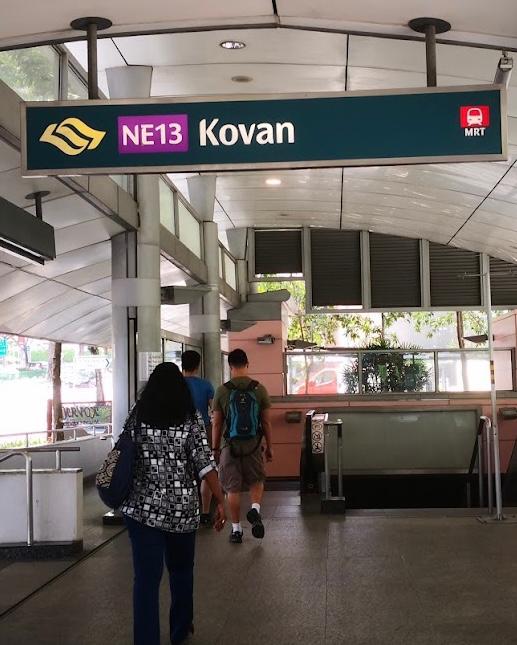With the warm weather expected these few weeks, mosquito breeding is a cause for concern.
However, Dengue isn’t the only virus that mosquitoes can transmit.
On 12 May, three cases of the Zika virus were confirmed.
In addition, all three cases live or work in Kovan.
Three Zika Cases Confirmed in Kovan

The news was reported via a joint news release between the Ministry of Health (MOH) and the National Environment Agency (NEA).
According to data from the Ministry of Health (MOH), Singapore saw its last Zika case between 30 October and 5 November 2022.
Of the three cases, two are currently recovering at home.
The other is in the hospital in stable condition.

Fortunately, none of them are pregnant.
The cases’ family members have also been advised to monitor their health.
According to the news release, MOH has alerted doctors to be vigilant and test patients for Zika if their symptoms are clinically compatible, especially if the patient lives or works in Kovan.
NEA has advised residents in the Kovan area to monitor their health.
The agency advised residents, especially pregnant women, in the Kovan area to seek medical attention should they show symptoms of the Zika virus infection.
It added that individuals should also inform their doctors of their address and workplace.
Though no specific treatment is available for Zika virus infection, infected individuals with symptoms should get plenty of rest and drink water.
Control Measures
NEA said that indoor insecticide spraying in residential areas in Kovan is currently being carried out.
In addition, authorities are also conducting larvicide in common areas.
These measures were implemented to prevent mosquito breeding and kill adult mosquitoes.
Furthermore, residents are encouraged to allow NEA officers to inspect their premises and conduct the spraying of insecticide to prevent Zika transmission.
Outreach activities will also be conducted in the area to increase awareness of the virus to reiterate the need to eradicate the source of Zika.
Residents are also encouraged to apply insect repellent to protect themselves from mosquito bites.
However, the agencies caution that while they “have stepped up precautionary control measures”, they “cannot rule out that there are further cases, as most infected persons may display mild or no symptoms”.
How the Zika Virus Affects Pregnant Woman
The symptoms of the Zika virus infection include fever, rashes, joint pain, muscle pain, headache and conjunctivitis.
Most people display mild symptoms or don’t display any symptoms at all.
However, there’s a reason why the virus is still a cause of concern.
If a pregnant woman gets the Zika virus infection, there’s a chance for the virus to be transmitted to the woman’s foetus during pregnancy.
This can cause developmental issues in the foetus’ brain, vision, and Microcephaly, where a baby’s head is much smaller than expected.
In 2019, researchers found that of the pregnant people infected with the virus, 5-14% give birth to babies with signs of congenital Zika syndrome, which can cause developmental issues.
A 4-6% subset gives birth to babies with Microcephaly.
Though babies with the Zika virus may seem healthy at birth, they can suffer from seizures, vision, and brain development issues in their first year and potentially beyond.
The Zika virus is mainly transmitted through the Aedes mosquito.
However, it can also be transmitted through sexual contact and blood transfusion.
Zika Outbreak in Singapore
In 2015, the World Health Organisation (WHO) declared the Zika virus a “public health emergency that warranted a global response”.
Its emergency status was lifted in November 2016 but left more than 3,700 children born with health defects.
Most cases were reported in Brazil and the Americas.
Singapore experienced a Zika outbreak in 2016, reporting 455 Zika cases from 27 August to 30 November.
Most cases were found in Aljunied and Bedok, but on 1 September 2017, Prime Minister Lee Hsien Loong posted a Facebook post.
He said, “We must assume that Zika is elsewhere in Singapore too”.
As of May 2018, there were no active Zika clusters in Singapore.
However, an imported Zika case was reported in August 2022.
It was Singapore’s first reported Zika case since March 2020.
Join our Telegram channel for more entertaining and informative articles at https://t.me/goodyfeedsg or follow us on Twitter : https://twitter.com/goodyfeed
How You Can Protect Yourself
Aedes mosquitoes are the primary carriers of the Zika virus.
The name of this pesky mosquito is probably familiar since it transmits Dengue as well.
They are recognisable by their black and white bodies.
Dengue cases in 2023 fell by half compared to the first four months of 2022, dropping from 5,651 to 2,726.
However, with warmer weather expected from May to October, NEA urges the public to remain vigilant as Singapore could see a rise in Dengue cases.
Warm weather speeds up the growth of larvae, which means that Singaporeans cannot eliminate the possibility of more Zika cases being reported either.
Thus, NEA urges residents, especially those residing in Zika and Dengue cluster areas, to carry out ‘S-A-W’:
- Spray insecticide in dark corners around the house
- Apply insect repellent regularly
- Wear long-sleeve tops and long pants
Individuals are also advised to apply mosquito repellent with DEET, picaridin or IR3535 as the active ingredient.
NEA also encouraged infected individuals to practise safe sex or abstain from it entirely for a few months after recovery.
Ideally, men should carry out these measures for at least three months after recovery, and women should carry out these measures for at least two months after recovery.
These precautions can help prevent sexual transmission of the virus.
You can refer to NEA’s website for details on the current Zika clusters.
Would you be jailed for being half-naked in public? Well, the answer will shock you. Seriously. Watch this to the end and you'll understand:



